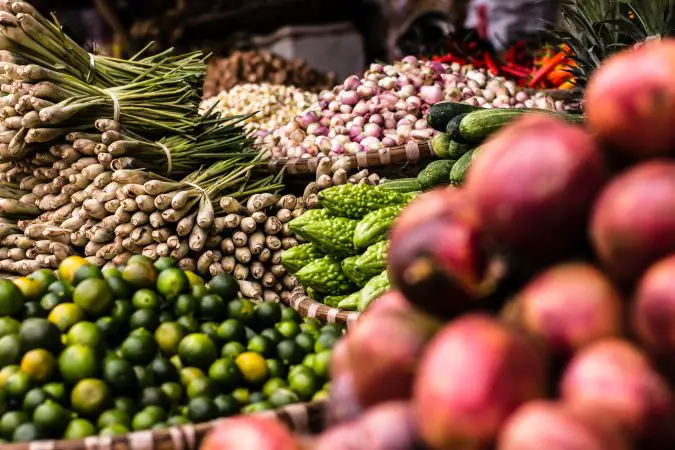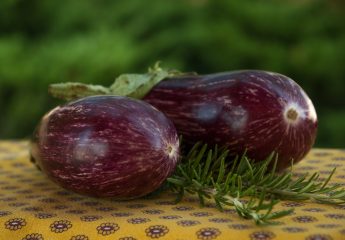You have likely heard of nightshades regarding fruits and vegetables, and you may have heard that they are not good for you. Since there are many myths surrounding nightshades, let’s take the time to clear them up, so you have a better understanding of what they are.
What Are Nightshade Vegetables?
Nightshade fruits and vegetables are parts of flowering plants that you can eat that are part of the Solanaceae group. In the Solanaceae group, there are over 2,000 plant types. However, only a fraction of them is edible.
Nightshades have a negative reputation. That is because some plants may be hallucinogens and narcotics. Additionally, there is a belief that they are not good for people with arthritis or autoimmune disorders in general.
Some people may have an allergy or sensitivity to nightshades. That is because there is a substance in nightshades called alkaloids that is bitter and serves as an insect repellent.
There is limited evidence that alkaloids aggravate arthritis, but some studies show that they can inflame the intestinal lining of irritable bowel syndrome.
However, is it necessary to avoid nightshades altogether if you have an autoimmune disorder? Nightshade vegetables and fruits have a small number of alkaloids to the point that they will not likely make a difference if eaten in moderation.
If you’re interested in finding out more types of vegetables, CLICK HERE.
Nightshade Vegetables List
 Now, let’s go over some of the nightshade vegetables.
Now, let’s go over some of the nightshade vegetables.
Eggplants
Even though eggplants are technically a fruit, they belong in the vegetable category because they go well with other vegetables. In addition, eggplants are a nightshade food, and they provide an excellent source of fiber and other essential vitamins and minerals. Therefore, if you do not have a sensitivity to eggplant, they are an excellent food for helping you regulate and help avoid constipation.
Additionally, the fiber levels in eggplant are pretty high, which means if you have dinner that contains eggplant, you will be less likely to feel hungry too soon. However, many people avoid eggplant because it is a nightshade food, and some don’t like the taste and texture.
Chili Peppers
Chili peppers are another nightshade vegetable, and they contain a chemical known as capsaicin, which makes these peppers so hot. Only some people can tolerate eating chili peppers because they are so incredibly hot and spicy to eat.
However, for those who do not have any sensitivity to nightshade foods, it is beneficial to make chili pepper supplements that consist of capsaicin powder.
The reason for that, as counterintuitive as it sounds, chili pepper supplements can help reduce heartburn. They are also helpful for weight loss or maintenance as the capsaicin can help speed up metabolism, which is essential for weight management.
Potatoes
Potatoes are another nightshade vegetable as they are from the skin and not from the flesh. That is why it is said the skin of the potato has plenty of nutrients. The flesh also contains Vitamin B6, potassium, and manganese. However, for those who have diabetes or hyperglycemia, they need to be careful when eating potatoes as they are starchy vegetables.
One small potato contains about 30 grams of carbohydrates which is too high for those who need to manage their blood sugar.
Other lower-carb options are not nightshade vegetables, such as yams or sweet potatoes. Those would be healthier options for people with diabetes.
Peppers
Peppers are technically fruits because they have seeds; however, again, they fit into the vegetable category. Therefore, peppers are also nightshade vegetables. It does not matter what the color of the peppers is, whether they are red or green.
As long as you do not have any sensitivity to nightshades, you will want to get peppers into your diet since they are high in Vitamin C and fiber. That means you will become full quicker, and your immune system will receive a boost from Vitamin C. Therefore, you will want to stock up on them when it is cold and flu season.
Tomatoes
Tomatoes are another fruit in the vegetable category, which means they are another group of nightshades. They contain high levels of Vitamins A and C, which means they are good for your immune system as well as eye health. Additionally, they have an antioxidant known as lycopene which can help reduce inflammation.
Therefore, you will want to eat these superfoods daily if you can. They are perfect in salads, and you can also cook with tomatoes which can add some flavor to many dishes.
Have a look at our website to find out more about gardening and related equipment.
Conclusion
Nightshades get plenty of bad rap because they might have a dark past, and myths do spring up due to that. They also are known to aggravate autoimmune conditions and worsen inflammation, such as in those who have irritable bowel syndrome. However, further studies need to be conducted on that as there is no concrete proof.
Many people have sensitivities and allergies to nightshades as well. Those who have severe allergies to nightshades to the point of becoming anaphylactic then those individuals should avoid them as food allergies can be dangerous.
However, if you have a mild sensitivity to them, you will want to speak to your doctor since nightshades have plenty of nutrients‘. There are alternatives as well if it is not ideal for you to eat them.



